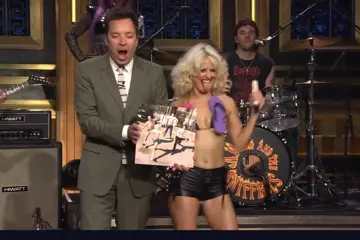“For a lot of people in the West, it is very shocking; it's hard for them to get over seeing little kids punching each other,” says Todd Kellstein. He's just made Buffalo Girls, a portrait of two eight-year-old girls growing up rural Thailand's cottage industry of child boxing, where 30,000 kids compete in Muay Thai bouts for a huge black-market of gamblers, with questions of parental exploitation naturally arising.
Kellstein was in Thailand in 2006, working on a documentary about Thai prisons when his project – and his life – became suddenly sidetracked. “It all started when I saw these kids fighting, as a bit of a sideshow, in Chon Buri, in Eastern Thailand,” he recounts. “I was very shocked and surprised by what I saw and when I found out that they were fighting for money, I was instantly intrigued.”
So Kellstein came home to California, sold all his stuff, begged for enough funding to cover the barest of filmmaking basics, then returned to Thailand for what would turn out to be three years of shooting, two-and-a-half years of editing. “I didn't know any Thai when I got there, nothing. I didn't know the languages or the customs, I didn't know how to act, I didn't [know] what was appropriate to ask – I didn't know if people were being truthful or not truthful to me.”
Kellstein picked up language and customs over years of shoestring shooting, by the end of which they had four terabytes of footage. After failing to find a Thai-speaking film editor, he hired Thai-speaking LA natives, taught them Final Cut, and had them translate all the raw footage line-by-line; a process that took four months. And then they started editing, which took two-and-a-half more years. It was a saga that, towards the end, involved a dexterous moral balance.
“The difficulty was how to tell this story without being pro or con child boxing, without making any judgment calls on the sport or the culture or the parents or the kids or the bettors, or anybody. That presentation was difficult to get,” Kellstein says. “Overcoming my Western prejudices was really hard for me; it was something that I really suffered over... I went there thinking I was going to make a film that was going to create awareness about child boxing, and maybe start a movement to stop what was happening there. Which is obviously my own hubris.”
Over his near-six years at work on Buffalo Girls, Kellstein changed that opinion completely; seeing the sport as a “fantastic economic alternative, especially for girls, to support the family”; especially when the sex industry usually beckons as the only other alternative. Similarly, Western audiences that initially seem outraged grow “much more forgiving” after seeing the extreme poverty from which the pre-adolescent pugilists hail.
The picture speaks of a local fighting culture – generations of family involved in Muay Thai creating a “whole huge family network”, with definite 'stage parent' tinges – and, even, dips provocatively into local slang. “The word 'buffalo' over there is a derogatory term for a Thai farmer, it means you're big and slow and powerful and dumb and you don't talk back,” Kellstein explains. “The title, really, translates as 'Stupid Fucking Kids'. I used that term to show that that is exactly what they're not.”















